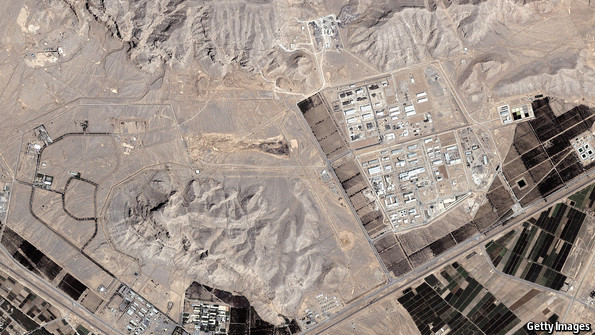
Elements of the
Muslim Brotherhood,
the Islamist group whose ideology has inspired terrorists such as Osama
bin Laden, are in the United States and have supported terrorism here
and overseas,
FBI Director
Robert Mueller told a House committee Thursday.
Mueller joined seven other Obama administration intelligence and law enforcement officials at a hearing of the
House Permanent Select Committee on Intelligence.
They spoke of the Brotherhood's U.S. ties as word spread in Egypt that
President Hosni Mubarak was prepared to resign. Mubarak has repeatedly
said his administration, in place since 1981, is the one thing keeping
an Islamic state led by the Brotherhood from taking over Egypt.
While Mueller,
Director of National Intelligence James Clapper
and other witnesses spelled out a variety of threats, they and some
committee members highlighted the Brotherhood's ties in the United
States. It was a significant departure from earlier hearings, which
focused on groups more directly involved with terrorism.
"I'm concerned that the Muslim Brotherhood is using peaceful protests
in Egypt for a power grab, and our government doesn't seem to grasp
their threat,"
Rep. Sue Myrick, R-N.C.,
told the committee and the witnesses. "The Muslim Brotherhood isn't a
danger because they are terrorists, but because they push an extremist
ideology that causes others to commit acts of terrorism."
Clapper agreed that "there are entities associated with the Muslim
Brotherhood here in the United States." Mueller told Myrick that he
would provide the committee with greater detail on the Brotherhood's
activities in closed session.
However, Clapper
also characterized
the Brotherhood in Egypt as a mostly secular umbrella organization.
"The term 'Muslim Brotherhood'...is an umbrella term for a variety of
movements, in the case of Egypt, a very heterogeneous group, largely
secular, which has eschewed violence and has decried Al Qaeda as a
perversion of Islam," Clapper said in response to a question from
Myrick. "They have pursued social ends, a betterment of the political
order in Egypt, et cetera.....In other countries, there are also
chapters or franchises of the Muslim Brotherhood, but there is no
overarching agenda, particularly in pursuit of violence, at least
internationally."
Clapper's "secular" reference is odd, given the
Brotherhood's motto
is "Allah is our objective. The Prophet is our leader. The Qur'an is
our law. Jihad is our way. Dying in the way of Allah is our highest
hope."
In
a statement issued
after the hearing, Myrick expressed astonishment at Clapper's
assessment. ""Either the Administration doesn't know who the Muslim
Brotherhood is, which shows incompetence," she said, "or they are
apologizing for them, which is inappropriate for those in charge of
protecting the American people. Let's be clear – the Muslim Brotherhood
is NOT secular."
During the hearing, Myrick said she was also concerned about the
Brotherhood's attitudes toward government. "The danger of the Muslim
Brotherhood is not just encouraging terrorism through their ideology,
but also trying to take over government, so everyone has to succumb and
live under their ideology," Myrick said.
The scope of the Brotherhood's vision for the United States was spelled out in a 1991 document called the
"Explanatory Memorandum." In that memo, which federal prosecutors introduced as evidence in two trials of the now-defunct
Holy Land Foundation for Relief and Development, Brotherhood leaders said they planned to create an Islamic state in the United States.
In that document, the Brotherhood's stated goal was "a kind of grand
Jihad in eliminating and destroying the Western civilization from within
and "sabotaging" its miserable house by their hands and the hands of
the believers so that it is eliminated and God's religion is made
victorious over all other religions."
The memo also listed
29 organizations working in the United States to further the Brotherhood's goals. They include the
Islamic Society of North America (ISNA), the
Muslim Students Association (MSA), the
North American Islamic Trust (NAIT) and the
Islamic Association of Palestine (IAP). The IAP and the Holy Land Foundation shared many members and directors, including those who founded the
Council on American-Islamic Relations (CAIR).
Clapper told the committee the U.S. government has no relationship
with the Muslim Brotherhood in America. However, In response to a
question from Rep. Peter King, R-N.Y., Mueller said "we do not have a
relationship with CAIR," although some FBI officials have attended the
same events as CAIR representatives. The
FBI suspended formal ties
with CAIR in 2009, citing CAIR's ties with Hamas, the Middle Eastern
terrorist group that controls the government in Gaza, and the
ties of some CAIR leaders with Hamas front groups.
Much of the evidence tying CAIR to
Hamas, another offshoot of the Muslim Brotherhood, was presented during the two trials of the Holy Land Foundation.
Five HLF officials were convicted in 2008 of illegally sending millions of dollars to Hamas.
Much of the hearing testimony focused on the threat still posed by
al-Qaida, the Islamist terrorist group responsible for the 9/11 attacks.
Anwar al-Awlaki,
the U.S.-born cleric who now leads al-Qaida unit based in Yemen,
al-Qaida in the Arabian Peninsula (AQAP), has become perhaps the
greatest threat,
Clapper said.
While AQAP has primarily focused on attacks in Yemen and Saudi
Arabia, Clapper said, "it is increasingly devoted to directing and
inspiring attacks on the U.S. Homeland and other targets in the West, as
well as Western interests in Yemen."
Other witnesses were CIA Director Leon Panetta, Michael Leiter,
director of the National Counterterrorism Center; Lt. Gen. Ronald
Burgess, director of the Defense Intelligence Agency; Caryn A. Wagner,
under secretary for intelligence and analysis, Department of Homeland
Security; Thomas A. Ferguson, principal deputy under secretary of
Defense for intelligence; and Philip S. Goldberg, assistant secretary of
State, Bureau of Intelligence and Research.







 Elements of the
Elements of the 


 Past events have been sold out, no tickets are sold at the door -- so register TODAY to reserve your place!
Past events have been sold out, no tickets are sold at the door -- so register TODAY to reserve your place!








![[By Jiao Haiyang/China.org.cn] [By Jiao Haiyang/China.org.cn]](http://images.china.cn/attachement/jpg/site1007/20130322/001ec949c22b12b6037b04.jpg)
 Republicans
in the Senate today introduced a bill to abolish FEMA, the agency of
the federal government which coordinates responses to natural disasters.
Republicans
in the Senate today introduced a bill to abolish FEMA, the agency of
the federal government which coordinates responses to natural disasters.